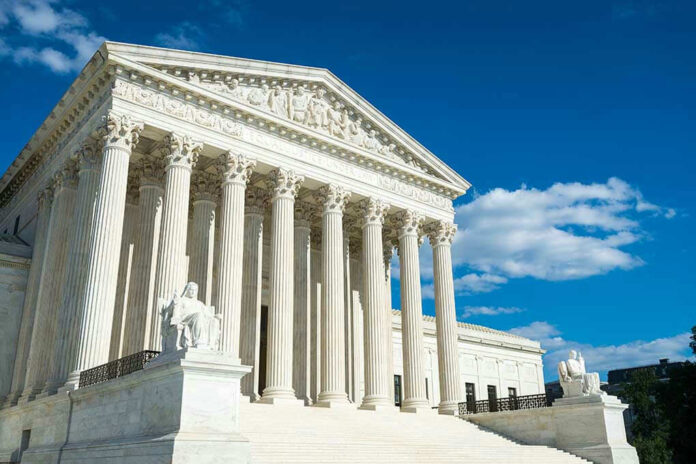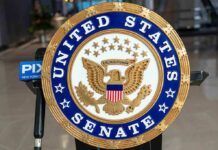
A Supreme Court case threatens to erode state rights in redistricting, sparking concern among constitutional advocates.
Story Overview
- The U.S. Supreme Court reviews Louisiana’s 2024 congressional map legality.
- The case tests the balance between the Voting Rights Act and the Constitution.
- Outcomes could reshape national redistricting laws and minority representation.
- The decision directly impacts the 2026 midterm elections and Louisiana’s political landscape.
Supreme Court Reviews Louisiana’s Congressional Map
The U.S. Supreme Court is hearing Louisiana v. Callais, a pivotal case examining Louisiana’s 2024 congressional map with two majority-Black districts. This case challenges the balance between the Voting Rights Act (VRA) and the Equal Protection Clause, potentially reshaping national redistricting law. The outcome is crucial for the 2026 midterm elections and could redefine minority representation across the United States.
In 2022, Louisiana passed a congressional map with only one majority-Black district, which federal courts found likely violated the VRA. In 2024, the state redrew its map to include two majority-Black districts to comply with Section 2 of the VRA. The Supreme Court has scheduled a reargument to focus on constitutional implications, highlighting the exceptional significance of this case.
Constitutional Implications and National Impact
The reargument ordered by the Supreme Court emphasizes the constitutional questions at the heart of this case. The core issue is whether the intentional creation of majority-minority districts, even as a VRA remedy, violates the Constitution. This decision will not only affect Louisiana but also set a precedent for other states navigating similar redistricting issues amid a narrowing scope of the VRA.
The case draws attention to the broader debate over race-conscious policies and their limits within the U.S. legal framework. A ruling against the map could restrict remedies for racial vote dilution, whereas upholding it may ensure fair representation for minority voters. This legal battle has attracted national civil rights organizations and political parties, all closely monitoring the proceedings.
Potential Outcomes and Stakeholder Positions
Short-term, the 2026 midterm elections could proceed under the contested map, directly influencing Louisiana’s congressional delegation. Long-term, the ruling might redefine how race is considered in redistricting, affecting the enforcement of the VRA and political representation nationwide. Black voters in Louisiana, political parties, and civil rights groups are primary stakeholders in this case, as its outcome could shift partisan balances and set a legal precedent.
While civil rights advocates argue for upholding the remedial map to ensure fair representation, some state officials claim it constitutes unconstitutional racial gerrymandering. The Supreme Court’s final decision will be crucial in determining the future of race-conscious districting and the VRA’s role in protecting minority voting rights.
Sources:
NAACP Legal Defense Fund, “Louisiana v. Callais – Legal Defense Fund”












